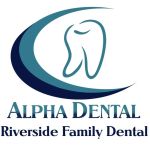Understanding Dental Emergencies
Dental emergencies can strike without warning, and they often require immediate attention. Whether it's a severe toothache, a broken tooth, or a knocked-out tooth, knowing how to handle a dental emergency can mean the difference between saving your tooth or needing extensive dental work. Preventive measures can help reduce the likelihood of emergencies, but understanding how to respond when they happen is just as crucial.Dental emergencies are defined as any issue that requires immediate attention from a dentist to alleviate severe pain, stop bleeding, or prevent further damage. These incidents may occur due to an accident, poor oral hygiene, or untreated dental conditions. Knowing when to seek emergency services and where to find them is key to managing these situations effectively.Common Types of Dental Emergencies
There are several types of dental emergencies that people commonly experience. Some of the most common include:1. Severe Toothaches Intense tooth pain is often a sign of infection, tooth decay, or damage to the tooth’s nerves. The pain can be sharp, throbbing, or constant and often worsens when eating or drinking hot or cold foods.2. Broken or Chipped Teeth Whether caused by an accident, biting something hard, or simply wear and tear, a broken or chipped tooth can be both painful and unsightly. If left untreated, it may lead to further damage.3. Knocked-Out Teeth A knocked-out tooth is one of the most serious dental emergencies, and immediate action is required to increase the chances of saving the tooth. The faster you see a dentist, the better the chances are for re-implantation.4. Abscessed Teeth A dental abscess is a pocket of pus caused by a bacterial infection, often leading to severe pain, swelling, and fever. This condition requires prompt treatment to prevent the infection from spreading.5. Gum and Soft Tissue Injuries Cuts or tears in the gums, lips, or other soft tissues inside the mouth can be painful and may require stitches to heal properly. These injuries should be treated by a dentist as soon as possible.Recognizing these emergencies and knowing how to respond can help you avoid serious complications and get the proper treatment quickly.How to Find Dental Emergency Services in My Area
Finding dental emergency services in your area can be crucial when an emergency strikes. Here are some tips to help you locate the right help:1. Search Online A quick online search using keywords like "dental emergency services in my area" or "emergency dentist near me" will typically give you a list of dental clinics that provide 24/7 emergency services. Many dental offices will list their emergency hours on their website, so you can find immediate help.2. Call Your Regular Dentist Many general dentists provide emergency services or have an after-hours contact for urgent dental issues. If your regular dentist offers emergency care, they will be the first place to call.3. Check Local Listings If you're unable to find emergency dental services online, check local directories or websites that specialize in medical or dental emergencies. They often provide a comprehensive list of emergency dental care providers in your area.4. Ask for Recommendations If you’re unsure where to go, ask friends, family, or coworkers if they’ve had experience with emergency dental services in your area. Personal referrals can often lead you to reliable dental professionals.The quicker you can access emergency dental care, the better the chance of minimizing long-term damage or pain.What to Do Before Seeing a Dentist in an Emergency
While waiting to see a dentist for a dental emergency, there are steps you can take to alleviate pain and prevent further damage:1. For Toothaches Rinse your mouth with warm water to clean it and use dental floss to remove any trapped food. Avoid placing aspirin or other painkillers directly on the gum as it could burn the tissue.2. For Knocked-Out Teeth If a tooth has been knocked out, rinse it gently with water (do not scrub) and place it back in the socket if possible. If not, keep it in a cup of milk or saline solution until you can see a dentist.3. For Broken Teeth Rinse your mouth with warm water to clean the area and apply a cold compress to reduce swelling. Avoid chewing on the affected side of your mouth.4. For Abscesses Avoid squeezing the abscess, as this could push the infection further into the tissue. Use warm saltwater rinses to alleviate pain until you can see a dentist.Taking these steps can help prevent further complications and ease discomfort while you await professional dental care.Real-Life Stories of Dental Emergencies
Take the case of Mark, a 33-year-old man who was playing basketball when he accidentally fell and knocked out one of his front teeth. Luckily, he had the foresight to store his tooth in a cup of milk and rushed to the dentist. Within an hour, the dentist successfully re-implanted the tooth, and Mark was able to save his smile thanks to quick action and emergency dental services.Another story is that of Jennifer, who developed a severe toothache one evening. She called her dentist’s emergency line and was directed to an urgent care facility. With immediate treatment, Jennifer’s tooth infection was resolved before it could spread further, and she was able to resume her normal activities.These real-life stories demonstrate the importance of quick action and access to dental emergency services. When dental emergencies occur, your response can make all the difference in saving your teeth and alleviating pain.Preventing Future Dental Emergencies
While dental emergencies can’t always be avoided, there are steps you can take to minimize the risk:1. Maintain Good Oral Hygiene Brush and floss regularly to prevent cavities and gum disease, which are common causes of dental emergencies.2. Wear a Mouthguard If you play contact sports, a mouthguard can protect your teeth from damage.3. Regular Dental Checkups Regular dental visits ensure that problems are caught early, reducing the chances of unexpected emergencies.4. Avoid Hard Foods Steer clear of extremely hard foods that could potentially break your teeth, such as ice or hard candy.By following these preventive steps, you can lower your risk of facing a dental emergency in the future.For more information on dental emergencies and how to prepare, visit Dentistry Toothtruth.







 Morrone, Kaye and Yucha Orthodontics - Moorestown5.0 (387 review)
Morrone, Kaye and Yucha Orthodontics - Moorestown5.0 (387 review) Baystate Family Dental4.0 (27 review)
Baystate Family Dental4.0 (27 review) Riverside Family Dental4.0 (431 review)
Riverside Family Dental4.0 (431 review) King's Family Dental Group4.0 (147 review)
King's Family Dental Group4.0 (147 review) Valley View Dental4.0 (1195 review)
Valley View Dental4.0 (1195 review) Breakwater Dental4.0 (58 review)
Breakwater Dental4.0 (58 review) The Importance of Oral Health Education During Pregnancy for a Healthy Pregnancy
The Importance of Oral Health Education During Pregnancy for a Healthy Pregnancy Best Tips for Brushing Your Teeth Properly for Healthy Gums: Essential Techniques for Oral Health
Best Tips for Brushing Your Teeth Properly for Healthy Gums: Essential Techniques for Oral Health Why Skipping Dental Checkups Can Lead to Bigger Oral Health Problems
Why Skipping Dental Checkups Can Lead to Bigger Oral Health Problems Advantages of Porcelain Dental Restorations
Advantages of Porcelain Dental Restorations How Can Diabetes Cause Tooth and Gum Problems? Preventing and Managing Oral Health Issues
How Can Diabetes Cause Tooth and Gum Problems? Preventing and Managing Oral Health Issues Healthy Habits for Promoting Good Oral Health and Hygiene: Tips for a Healthy Smile
Healthy Habits for Promoting Good Oral Health and Hygiene: Tips for a Healthy Smile